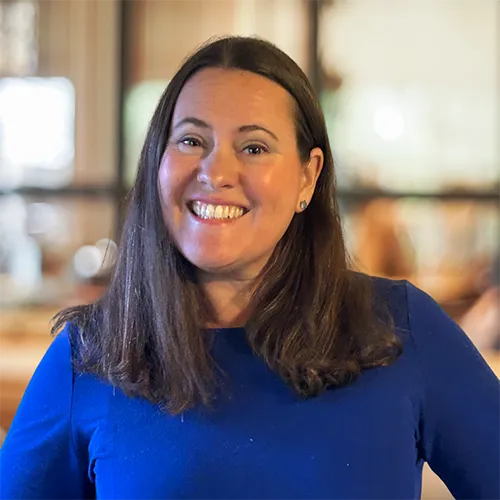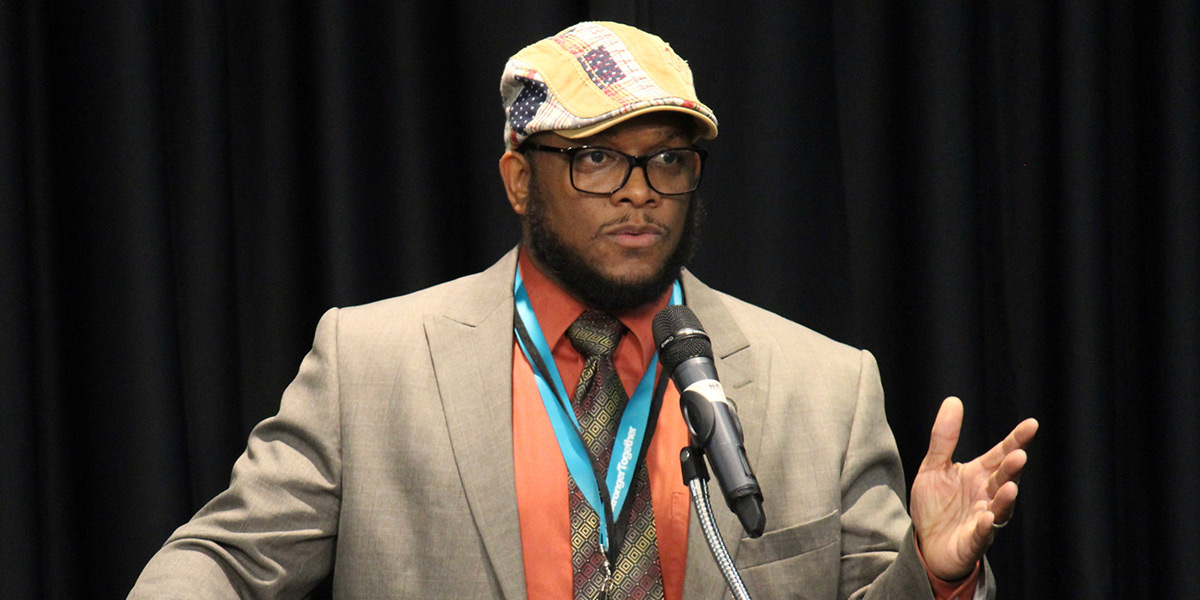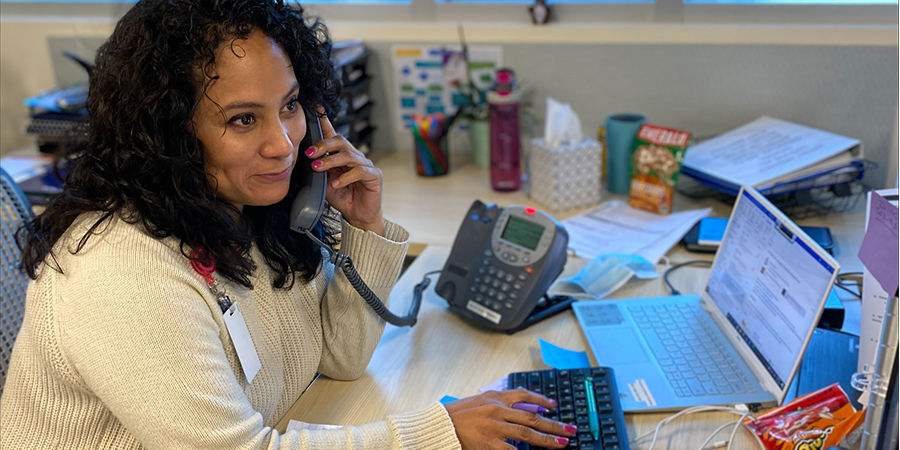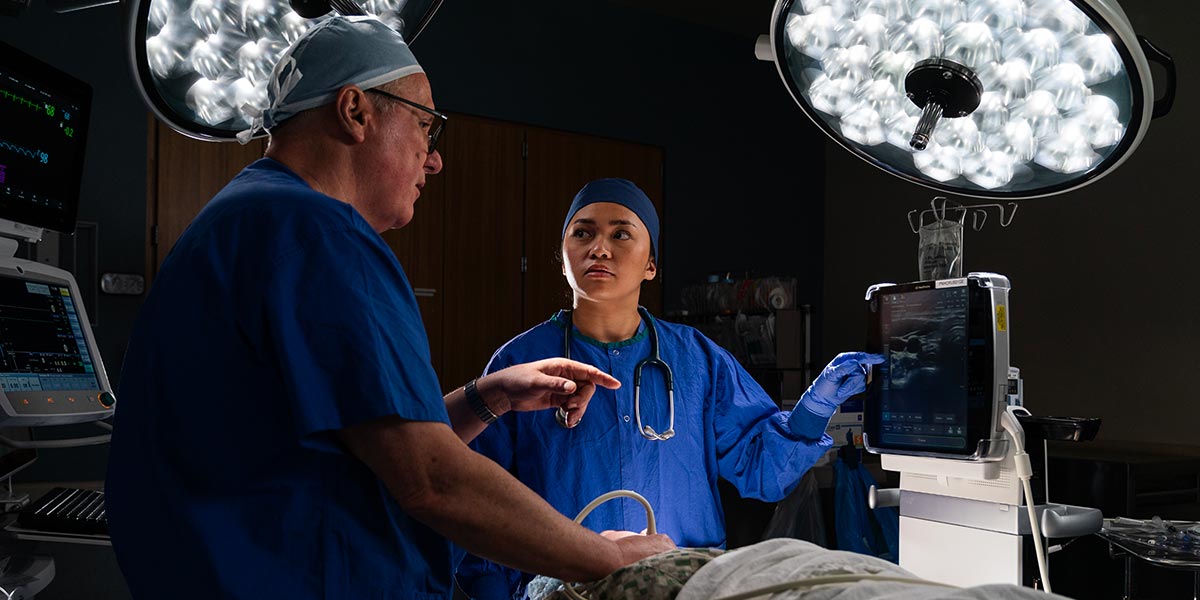
The Language of Empathy
by Jaime Handley
PA student Stan Cernev uses his language skills and empathy for the immigrant experience to care for medically underserved communities
The first year of physician assistant school is rigorous, fast-paced and academically challenging. For many new PA recruits, it can feel like trying to catch a waterfall in a teacup.
First-year PA student Stan Cernev recognizes those challenges, but ultimately he’s driven to press on with two values to motivate him: service and community.
A Unique Call
Stan’s parents – practicing doctors in their native Moldova – immigrated to the U.S. from Eastern Europe 20 years ago. After making their home in Salem, Oregon, his mother became a nurse and his father a nurse practitioner. As Russian-speaking medical providers, they quickly found a service niche in their new community – to the degree that some patients were willing to drive from as far away as Portland to establish care with Stan’s dad, Iuri.
Watching his parents serve that community gave Stan a deep appreciation of the power of empathy.
“People often underestimate how hard it can be to move to America – how hard it is not to know the language, while trying to navigate something like the healthcare system, which is a vital part of everyone’s life,” he says. “To have someone who can understand what you’re going through and what it takes to come here is powerful.”
With a full practice and more patients waiting to sign on, Iuri tangibly serves through his gifts and life experiences. Stan hopes to continue this legacy, using his resources and experiences to care for underserved communities.
The Path to PA School
Before coming to George Fox, Stan volunteered regularly at the Salem Free Clinic, whose mission is to be an expression of Christ’s love, bridging the gap in healthcare access by providing quality, compassionate care at no cost to those in need.
Stan also worked as a scribe in the emergency room, where he witnessed patients struggling to communicate with providers due to language barriers. It was there he discovered his unique role as a Russian speaker.
“Witnessing patients come in who might not speak English and have to rely on telephone interpreters was eye-opening,” he says. “Although telephone interpreters are a valuable resource, we may not always have interpreters who speak Ukrainian or Russian. And you simply can’t connect with patients in the same way over the telephone.”
These experiences brought a nuanced understanding to Stan’s definition of “underserved” and his unique role in tangibly caring for these communities.
“The bottom line is to use the skills God and your own life experiences have given you to leverage all you have. ‘Underserved’ doesn’t just mean rural communities. There are underserved populations all around us, even in places like Salem and Newberg.”
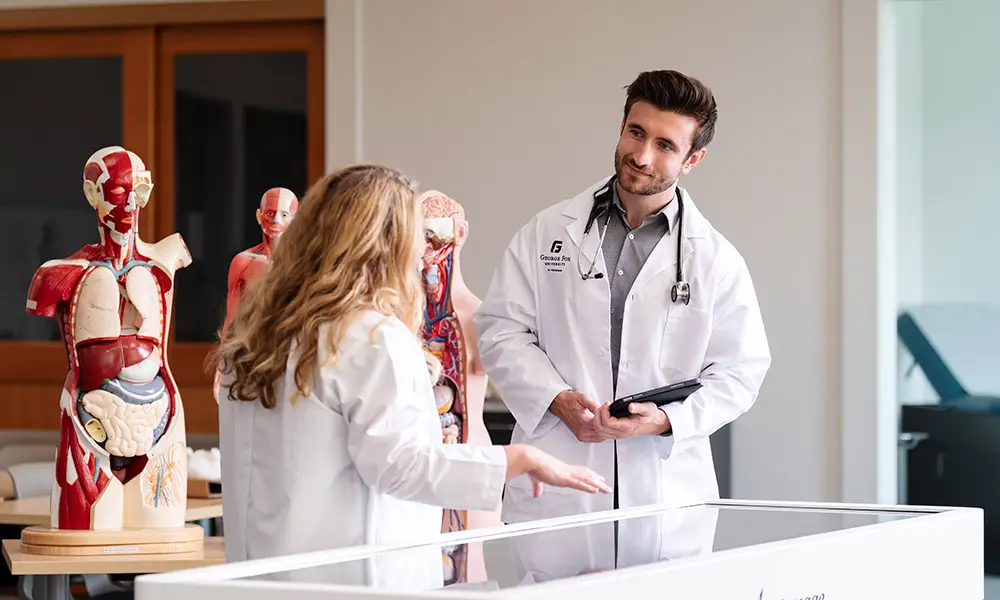
Finding a Home at Fox
Growing up in a robust faith community allowed Stan to regularly invest in the people in his sphere, whether through discipleship groups, kids’ ministry, worship leading or summer youth sports events. The community he served so faithfully is also the one that supported him in prayer as he considered where to attend PA school – many of whom are his dad’s patients.
With a strong background in service, it was important Stan find a program with a focus on Christ. George Fox’s commitment to training compassionate providers to serve in underserved communities was a huge pull.
But it was the admissions interview that sealed the deal.
“When I went to the interview, the connection was instant,” he recalls. “The professors were personable and made me feel like I belonged there, which was so different from other interview processes I went through.”
Stan was elated to find that the sense of belonging he felt during the interview process continued when he entered the program. From his professors to his classmates, his academic community of support is crucial as he takes on the rigors of PA school.
Whether it’s being prayed over by professors before block testing, attending monthly Bible studies provided by faculty, or participating in Monday student prayer groups with his classmates, Stan views his time at George Fox as a unique opportunity to combine his faith with his calling to medicine.
“In PA school, we are all so busy, and it’s hard to keep our minds on God at all times,” he says. “Having a baseline of understanding that we’re in a Christ-centered community keeps God at the forefront. I also want to be informed by this as a provider.
“God put us here and gave us gifts to care for our patients. We’re not just doing it for the paycheck or prestige. We are doing it because we want to make a difference in our patients’ lives.”
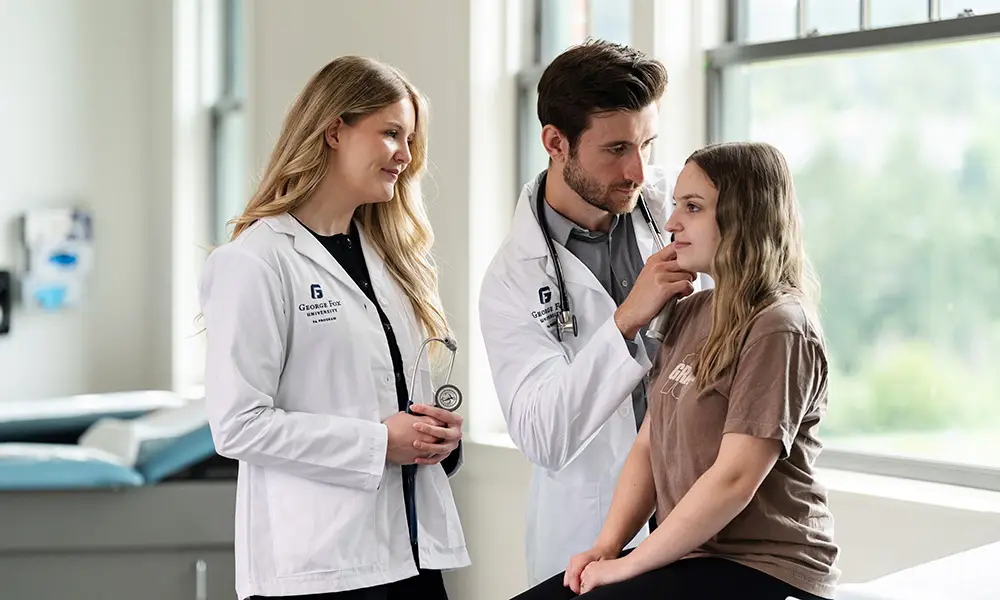
Learning in Community
As someone who values community, Stan champions the problem-based learning model that George Fox employs to train the next generation of PAs.
“Every week, we get together in groups of six and discuss patient care and work through patient cases,” he explains. “We discuss symptoms and presentations and work backwards. We research between sessions to work through the case to its conclusion. The best part is the insight we gain from each student in the group.”
Leaning into the unique life experience of each of his peers has taught Stan to value his classmates’ opinions and experiences. As he collaborates with cohort-mates from diverse service backgrounds – from those with overseas experience to those with expertise in addiction and recovery – Stan’s knowledge base and empathy expand.
“Listening to the diverse opinions from other students has helped me grow personally,” he says, “And the problem-based learning has helped me value what each person brings to the table.”
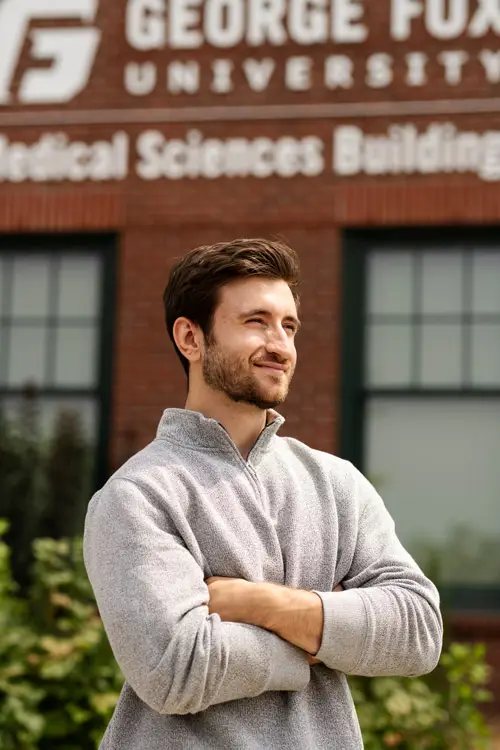
Looking Ahead
As Stan looks toward the future, he hopes to return to Salem and serve the community that has meant so much to him. But he also holds his future open-handedly, knowing that his life and his gifts are in service to God.
And he feels the weight of the tremendous honor it is to serve Christ tangibly in a ministry of healing.
“Our patients are putting their trust in us,” he says. “It’s a significant responsibility, and it's tied to our walk with God. If God is putting these people in our path, we are accountable for providing the best, compassionate care. All of this is pushing me to study and get prepared to go out into the world and make a difference with my patients.”
